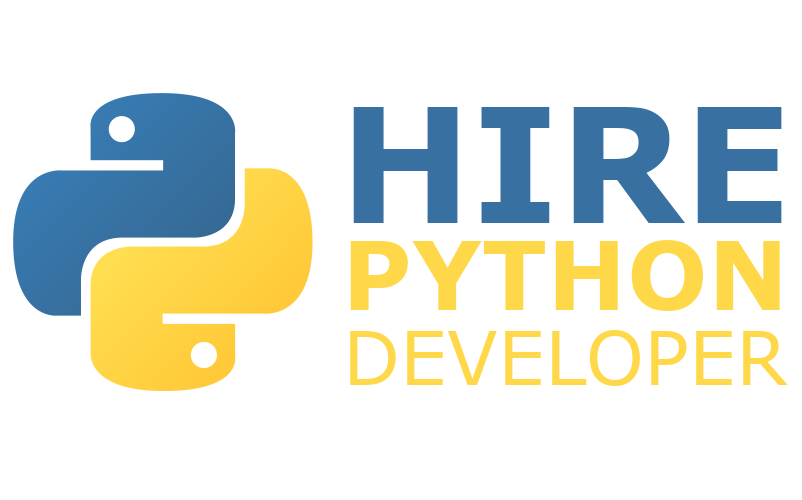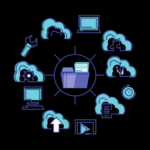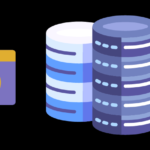Interesting Facts about Python Programming: Its name isn’t derived from the snake but the British comedy series “Monty Python’s Flying Circus.”
If you’re a programmer or interested in coding, you’ve likely heard of Python programming. This versatile language has gained immense popularity in recent years, and for a good reason. From its unique naming convention to its broad range of uses, Python programming is fascinating and worth learning.
Key Takeaways:
- Python programming language is named after the British comedy group, Monty Python.
- Python is one of the most beginner-friendly programming languages, with simple syntax and readability.
- Python has an extensive community that offers developers ample support and guidance.
- Python is versatile and powerful, used for web development, data analysis, AI, machine learning, automation, and more.
- Python offers a wide range of libraries and modules that enhance its functionality and saves developers time and effort.
- Python is used by many prominent companies and organizations for software development, including Google, Facebook, and NASA.
- Python uses indentation rather than braces or keywords to denote code blocks, enforcing clean and readable code.
- Python is a cross-platform language that can run on various operating systems such as Windows, macOS, and Linux.
- Python’s popularity and versatility have led to a strong demand for Python developers in the job market.
- Python continues to evolve with new versions introducing enhancements and new features to remain up-to-date in the ever-changing field of programming.
Python is Named After Monty Python
Python programming language is not named after the reptile, but after the British comedy group, Monty Python. Guido van Rossum, the creator of Python, had a fondness for the group’s work and chose the name as a tribute to them.
Interesting Facts about Python Programming: Guido van Rossum, Python’s creator, released it on Christmas in 1991, gifting the world an iconic coding language.
Python is Beginner-Friendly
Python programming language is known for its simplicity and readability, making it one of the most beginner-friendly programming languages available today. The language is designed to emphasize code readability, enabling developers to express concepts in fewer lines of code than they would with other languages.
Python’s syntax is straightforward and easy to understand, which helps newcomers grasp programming concepts more easily. Its intuitive design and simplified syntax make it an ideal language for those interested in learning to code for the first time.
Python’s Simplicity
The simplicity of Python makes it an excellent language for beginners. Its design emphasizes readability and simplicity, which makes it easier for newcomers to understand coding concepts. The language’s straightforward syntax and minimal use of special characters also make it easy to learn.
Python‘s ease of use extends beyond its syntax. The language has a vast library of documentation and tutorials, making it easy for newcomers to find helpful resources. Additionally, its vast community of developers worldwide ensures that newcomers receive ample support and guidance in learning the language.
Python’s Readability
Python’s emphasis on readability makes it a popular choice for developing and maintaining large-scale software applications. The language’s consistency and simplicity reduce the risk of errors and bugs in code, which can be costly to fix.
The language’s readability also makes it easier for developers to collaborate on projects. Team members can easily understand each other’s code, making it easier to work on projects together.
Overall, Python’s simplicity and readability make it a powerful language for both beginners and experienced developers. Its straightforward design makes it easy to learn, while its versatility and power make it a popular choice across various domains, from web development and data analysis to artificial intelligence and machine learning.
Python has a Vast Community and Support

Python has a large and active community of developers worldwide, which contributes to its extensive support network. Additionally, an increasing number of Python developers worldwide implies that help is always available when needed. This support comes in the form of forums, blogs, documentation, and tutorials.
One of the primary reasons behind Python’s extensive support network is its open-source nature. Python developers worldwide contribute to the language through various libraries and frameworks. These contributions allow developers to use pre-written code and modules and simplify their programming tasks.
Another advantage of Python’s extensive community is the regular updates and modifications. The community provides feedback and suggestions for new features, and the Python Software Foundation (PSF) releases new versions of Python with enhanced features and better performance.
The tight-knit Python community ensures that newcomers receive ample assistance in learning and developing applications efficiently. Additionally, it creates a collaborative work environment where developers come together to solve problems and share ideas.
Python is Versatile and Powerful
Python is not only beginner-friendly, but also a versatile language capable of handling various tasks. Its powerful libraries and frameworks enable developers to create sophisticated applications and solutions. Python can be used for web development, data analysis, artificial intelligence, machine learning, automation, and more. This makes it a popular choice for various industries and domains.
Libraries and Modules
Python offers extensive libraries and modules that enhance its functionality. Libraries like NumPy, Pandas, and Matplotlib make data analysis and visualization easier, while modules like BeautifulSoup aid in web scraping. These pre-built tools save developers time and effort in writing code from scratch. Additionally, Python’s active community contributes regularly to the development of new libraries and modules, ensuring that the language remains up-to-date and relevant.
Python’s versatility also stems from its ability to integrate with other languages. Python can communicate with languages like C, C++, and Java, enabling the use of existing code and libraries in Python applications.
Real-World Applications
Python’s versatility and power have made it a go-to language for many prominent companies and organizations. Google, Facebook, Dropbox, Instagram, Netflix, and NASA are just a few examples of companies that rely on Python to power their applications and services. Python’s ability to handle complex tasks efficiently and effectively makes it an ideal choice for large-scale projects.
Cross-Platform Compatibility
Python is a cross-platform language, meaning it can run on various operating systems such as Windows, macOS, Linux, and more. This makes it easier for developers to write code that can be deployed on different platforms without major modifications. Cross-platform compatibility also enables developers to reach a wider audience with their applications.
Python’s versatility and power make it an excellent choice for both beginners and experienced developers. Its ability to handle various tasks, integrate with other languages, and run on different platforms make it a valuable skill for anyone interested in programming.
Python Has Extensive Libraries and Modules
Python has a vast collection of libraries and modules that extends its functionality in various fields. These pre-built tools enable developers to save time and effort by eliminating the need to write code from scratch. The following are some of the most popular libraries and modules in Python:
| Library/Module | Functionality |
|---|---|
| NumPy | Used for numerical computing and data analysis |
| Pandas | Used for data manipulation and analysis |
| Matplotlib | Used for data visualization |
| TensorFlow | Used for machine learning and artificial intelligence |
| BeautifulSoup | Used for web scraping |
These libraries and modules are continually updated and maintained by a community of developers, making Python more versatile and powerful. With the extensive collection of libraries and modules, Python can handle almost any programming task, ensuring a smooth and efficient development process.
Python is Used by Prominent Companies – Interesting Facts about Python Programming
Python’s versatility and power have made it a top choice for many well-known companies and organizations, making it a highly sought-after programming language in today’s job market. Companies like Google, Facebook, Dropbox, Instagram, Netflix, and NASA all rely on Python to power their applications and services.
Python’s extensive libraries and frameworks make it an attractive option for companies that require development in areas such as web development, data analysis, artificial intelligence, machine learning, and automation.
Python’s use by such prominent companies highlights its importance as an essential tool for developers and its relevance in the ever-evolving field of programming.
Python Uses Indentation for Code Blocks

Unlike many programming languages that use braces or keywords to denote code blocks, Python uses indentation. This unique feature enforces clean and readable code by making indentation crucial to the structure and flow of the program.
Indentation refers to the spaces or tabs at the beginning of a line in the code. The number of spaces or tabs used must be consistent throughout the program, as it determines which statements belong to which block of code.
The use of indentation instead of braces or keywords simplifies the code and makes it easier to read and maintain. It also prevents common errors caused by misplaced braces or incorrect indentation in other languages.
Python’s use of indentation as a structural element is just one of the many ways that the language prioritizes readability and ease of use.
Python Supports Multiple Platforms – Interesting Facts about Python Programming
It is a cross-platform language that can run on different operating systems, including Windows, macOS, and Linux. This compatibility makes it easy for developers to write code that can be deployed on various platforms without extensive modifications. Python’s ability to run on multiple platforms also makes it an attractive language for companies working with diverse systems and infrastructures.
It’s support for multiple platforms is vital in today’s technology landscape, where organizations rely on different platforms to perform various tasks. Python’s cross-platform capabilities enable developers to write code that can run on any platform with little to no modification. This results in faster development times and more efficient deployment of applications and services.
Python has a Strong Job Market – Interesting Facts about Python Programming
Python’s widespread use in various industries has created a strong demand for Python developers in the job market. Companies across the board, ranging from startups to tech giants, are seeking skilled professionals who are proficient in Python programming.
The popularity of Python in domains such as web development, data analysis, artificial intelligence and machine learning, has led to a surge in related job opportunities. It is not uncommon to see job postings that require proficiency in Python programming.
Moreover, proficiency in Python programming is highly valued in the job market, leading to competitive salaries and benefits packages for qualified individuals. Even entry-level positions for Python developers offer an attractive salary compared to other IT positions.
Learning Python programming can open up new doors of opportunity for job seekers, and provide a competitive edge for those already in the workforce. The strong job market for Python developers makes it an excellent language to learn for those interested in a career in programming.
Python Continuously Evolves – Interesting Facts about Python Programming
Python is a dynamic language that is continuously evolving to meet the demands and preferences of its users. Its evolution is driven by the Python Software Foundation (PSF), which oversees the development and maintenance of the language.
PSF regularly releases new versions of Python, with each version introducing new features, enhancements, and improvements. These updates ensure that Python remains relevant and up-to-date in the ever-changing landscape of programming.
Python’s latest version, Python 3, was introduced in 2008, and it brought significant changes to the language. Python 3 introduced a more consistent syntax and improved Unicode support, making it easier for developers to write code that is more concise, readable, and robust.
Python 3 has now become the standard version of Python, and the older Python 2 version is no longer supported. However, many developers still use Python 2, and there are still many projects that rely on it. To cater to these users, PSF also provides support for Python 2 through its Long-Term Support (LTS) program.
The Python community is actively involved in the development of Python, contributing to its evolution. The community contributes to various aspects of Python, from developing libraries, modules, and frameworks to providing bug fixes and improvements.
If you’re using Python, it’s crucial to stay up-to-date with the latest versions to take advantage of the language’s full potential. Keeping up with the latest developments in Python also helps you stay ahead of the competition and ensure your applications are efficient, secure, and reliable.
Conclusion – Interesting Facts about Python Programming

Python programming language has come a long way since its creation in the late 1980s. Its popularity continues to grow, and for good reason- it is a versatile, powerful, and beginner-friendly language. Python is named after the British comedy group Monty Python, and its unique feature of using indentation for code blocks enforces clean and readable code.
Python has a large and active community of developers worldwide, contributing to the development of libraries and frameworks that enhance its functionality. Its extensive libraries and modules make data analysis, web scraping, and visualization easier and faster. Python’s versatility enables it to be used in web development, data analysis, AI, machine learning, automation, and more.
Python is used by prominent companies such as Google, Facebook, Dropbox, Instagram, Netflix, and NASA for their software development needs. Its cross-platform capability allows developers to write code that can be deployed on different platforms without major modifications.
Matthew is a technical author with a passion for software development and a deep expertise in Python. With over 20 years of experience in the field, he has honed his skills as a software development manager at prominent companies such as eBay, Zappier, and GE Capital, where he led complex software projects to successful completion.
Matthew’s deep fascination with Python began two decades ago, and he has been at the forefront of its development ever since. His experience with the language has allowed him to develop a keen understanding of its inner workings, and he has become an expert at leveraging its unique features to build elegant and efficient software solutions.
Matthew’s academic background is rooted in the esteemed halls of Columbia University, where he pursued a Master’s degree in Computer Science.
As a technical author, Matthew is committed to sharing his knowledge with others and helping to advance the field of computer science. His contributions to the scientific computer science community are invaluable, and his expertise in Python development has made him a sought-after speaker and thought leader in the field.


![15 Most Contributed Python Projects on GitHub [Stats]](https://hirepythondeveloper.com/wp-content/uploads/2024/03/15-Most-Contributed-Python-Projects-on-GitHub-Stats-1-150x150.png)




